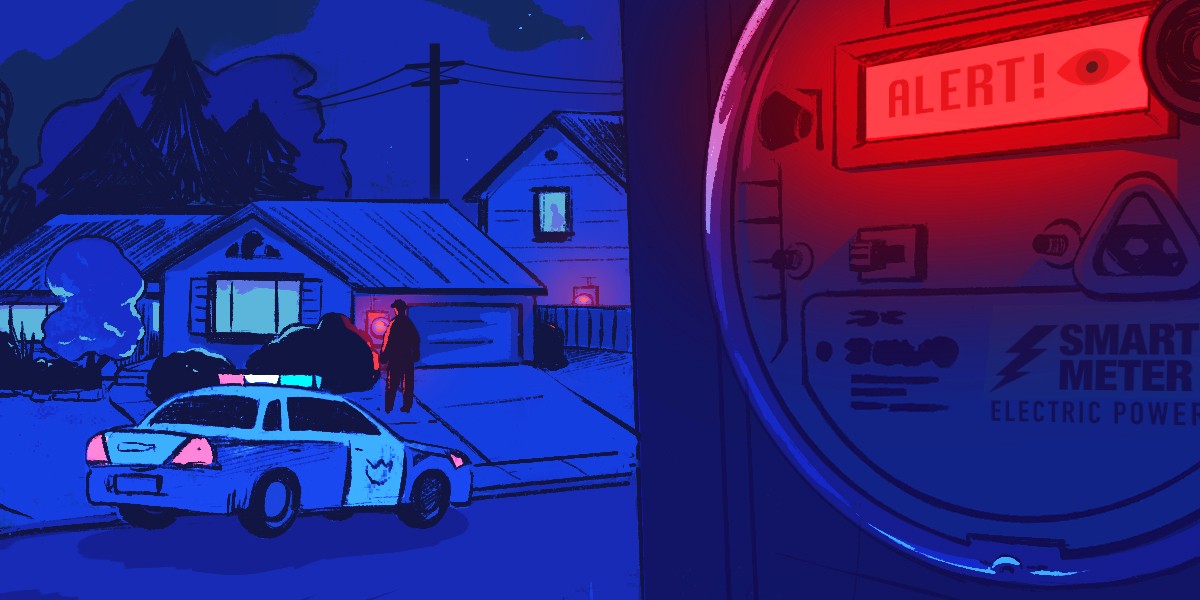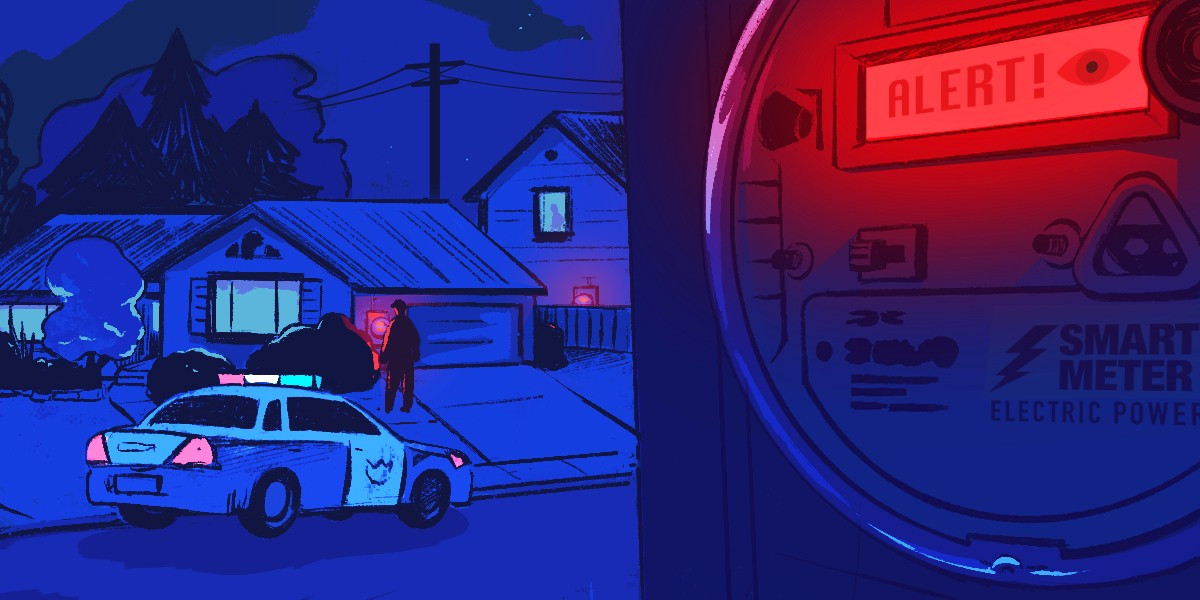Simply using extra electricity to power some Christmas lights or a big fish tank shouldn’t bring the police to your door. In fact, in California, the law explicitly protects the privacy of power customers, prohibiting public utilities from disclosing precise “smart” meter data in most cases.
Despite this, Sacramento’s power company and law enforcement agencies have been running an illegal mass surveillance scheme for years, using our power meters as home-mounted spies. The Electronic Frontier Foundation (EFF) is seeking to end Sacramento’s dragnet surveillance of energy customers and have asked for a court order to stop this practice for good.
For a decade, the Sacramento Municipal Utilities District (SMUD) has been searching through all of its customers’ energy data, and passed on more than 33,000 tips about supposedly “high” usage households to police. Ostensibly looking for homes that were growing illegal amounts of cannabis, SMUD analysts have admitted that such “high” power usage could come from houses using air conditioning or heat pumps or just being large. And the threshold of so-called “suspicion” has steadily dropped, from 7,000 kWh per month in 2014 to just 2,800 kWh a month in 2023. One SMUD analyst admitted that they themselves “used 3500 [kWh] last month.”
This scheme has targeted Asian customers. SMUD analysts deemed one home suspicious because it was “4k [kWh], Asian,” and another suspicious because “multiple Asians have reported there.” Sacramento police sent accusatory letters in English and Chinese, but no other language, to residents who used above-average amounts of electricity.
In 2022, EFF and the law firm Vallejo, Antolin, Agarwal, Kanter LLP sued SMUD and the City of Sacramento, representing the Asian American Liberation Network and two Sacramento County residents. One is an immigrant from Vietnam. Sheriff’s deputies showed up unannounced at his home, falsely accused him of growing cannabis based on an erroneous SMUD tip, demanded entry for a search, and threatened him with arrest when he refused. He has never grown cannabis; rather, he consumes more than average electricity due to a spinal injury.
Last week, we filed our main brief explaining how this surveillance program violates the law and why it must be stopped. California’s state constitution bars unreasonable searches. This type of dragnet surveillance — suspicionless searches of entire zip codes worth of customer energy data — is inherently unreasonable. Additionally, a state statute generally prohibits public utilities from sharing such data. As we write in our brief, the Sacramento’s mass surveillance scheme does not qualify for one of the narrow exceptions to this rule.
Mass surveillance violates the privacy of many individuals, as police without individualized suspicion seek (possibly non-existent) evidence of some kind of offense by some unknown person. As we’ve seen time and time again, innocent people inevitably get caught in the dragnet. For decades, EFF has been exposing and fighting these kinds of dangerous schemes. We remain committed to protecting digital privacy, whether it’s being threatened by national governments – or your local power company.













